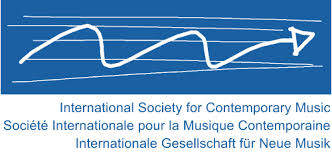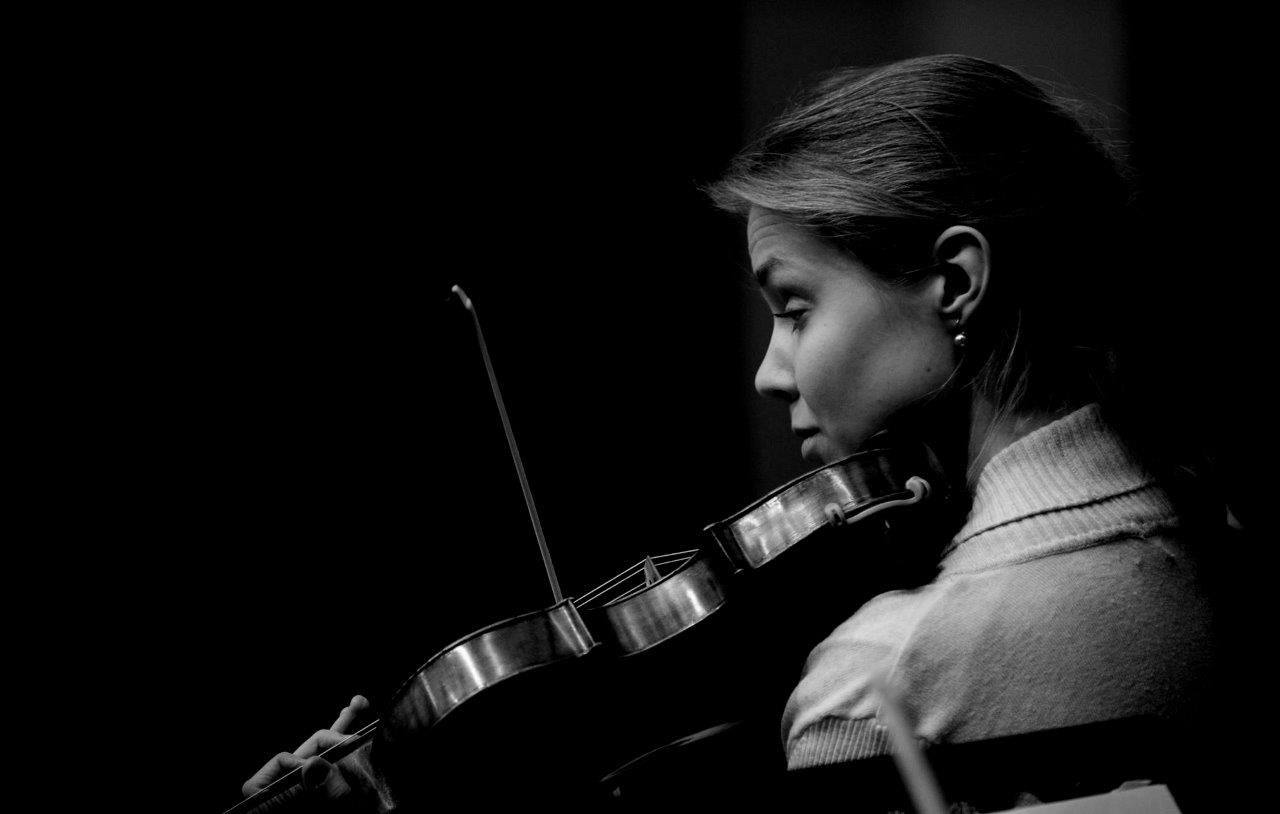|
ORCHESTERKONZERT
KONZERTE 5 février 2017 SCHULAUFFÜHRUNGEN 3 février 2017
KOMMENTAR Ein Erlebnis für die ganze Familie! Une expérience inoubliable pour toute la famille!
PROGRAMM Wolfgang Amadeus Mozart (1756-1791) Kee Yong Chong (1971) Javier Hagen (1971)
MITWIRKENDE Orchester der HEMU, Site de Sion
IN ZUSAMMENARBEIT MIT
Entdecken Sie unser Angebot
L’Orchestre de l’HEMU ist eine in
seiner Grösse flexible Orchesterformation, welche die besten angehenden
Musikstudenten der Haute Ecole de Musique HEMU aus ihren 3 Stammkantonen
Waadt, Freiburg und Wallis zusammenbringt. L'Orchestre de l'HEMU ist
ein wichtiger Kulturpartner in der Romandie - im Wallis arbeitet es
eng mit dem Festival Forum Wallis, dem Concours National d’Exécution
Musicale de Riddes, mit der Schola de Sion und dem Chœur Novantiqua
zusammen und teilt so sein künstlerisches Feuer und seine Kompetenz
auch über die Musikhochschule hinaus mit einem grossen und begeisterten
einheimischen Publikum.
Der schweizer Dirigent Jan Dobrzelewski stammt aus Neuchatel, studierte zunächst Violine und war lange Zeit der jüngste Konzertmeister Lateinamerikas, bevor er sich dem Dirigieren zuwandte. Unter seiner Leitung spielten sowohl das New York Festival Orchestra wie auch das Orchestre de la Suisse Romande. Von 2006-2016 leitete er die HEMU in Sion und engagierte sich mit dem Hochschulorchester für das Schaffen einheimischer Komponisten, darunter Andreas Zurbriggen, Christophe Fellay, Marie-Christine Raboud, Jean-Luc Darbellay und Yannick Barman. Le chef d’orchestre suisse Jan Dobrzelewski est né à Neuchâtel ou il a étudié avant de se perfectionner à Genève et aux USA. Il a été longtemps Konzertmeister de plusieurs orchestres en Amérique latine et aux Etats- Unis en parallèle avec une carrière de chef d’orchestre. 2006-2016, il dirige ce qui est devenu en 2008 le site de Sion de l’HEMU. A la tête de l’orchestre de cette institution, il a poursuivi son engagement à créer, soutenir et diffuser la musique des compositeurs suisses en général et valaisans en particulier, tels que Andreas Zurbriggen, Christophe Fellay, Marie-Christine Raboud, Jean-Luc Darbellay, Yannick Barman parmi bien d’autres.
Kee Yong Chong, the winner of multiple composition awards and one of Malaysia’s leading contemporary music composers, possesses one of the most exciting voices in new music today. Few composers succeed in fashioning a truly individual sound from the range of experimental techniques currently available, and Chong is one of the few who can turn a melange of exquisite timbres into a compelling piece of music that, most importantly, still bears a signature style. Indeed, his work has been hailed as “imaginative and poetic” by leading conductor-composer Peter Eötvös, and as “very inventive and artistically pure” by composer Jonathan Harvey. Belgian pianists Jan Michiels and Inge Spinette describe his as a "very personal voice, very deep and convincing." Chong was born into a farming family in the small town of Kluang in the heart of Johor, a palm oil plantation state in the south of Malaysia. Growing up in a rustic environment left an indelible mark on his artistic outlook, with the sounds and phenomena of nature providing endless sources of musical inspiration. Chong’s initial musical training at the Malaysian Institute of Arts introduced him to the more cosmopolitan city life of Kuala Lumpur, and his formative studies further afield at the Xian Conservatory in China, with Professors Rao Yuyan and Zhang Dalong, brought him full circle to his Chinese heritage. Chong pursued his final studies at the Royal Conservatory of Music in Brussels (Flemish and French sections) under the guidance of Professors Jan Van Landeghem and Daniel Capelletti. In 2001, the Conservatory unanimously awarded him the “Meester in Muziek” degree with highest honours. During his time in Brussels, Chong acquired and developed the tools to create the compositional style that he is best known for today: an engaging balance between cutting-edge, modern technique and a profoundly soulful, poetic beauty. Chong’s post-graduation studies included master classes with composers such as Brian Ferneyhough, Daan Manneke, Peter Eötvös, Salvatore Sciarrino, Henri Pousseur, Hanspeter Kyburz, and many others. In his compositional style, Chong embraces a vivid and constantly expanding palette of instrumental colours, while at the same time he is unafraid to explore the traditions of the past and incorporate aspects of tonality, lyricism, and rhythmic vitality into his austere contemporary language. This language is enriched by his multi-layered ethnic and cultural ancestry, which includes Chinese as well as multicultural Malaysian heritage. One can detect traces of Chinese opera, as well as gamelan influence, in his Monodrama (2004) for oboe, ensemble, and electronics; hints of kabuki and Asian funeral rituals in his extraordinarily moving symphonic work Tearless Moon (2006); and elements of calligraphy in his poetic I Hear The Wind Calling (2003). Connecting further with his Chinese roots, Chong also explores the sonic possibilities of traditional Chinese instruments in his Metamorphosis VI - Wind Prayer for sheng, gu zheng, pipa, and ensemble. Chong's distinctive style has won him an unending series of awards and commissions. His two-time success in Belgium with the Prix Marcel Hastir, awarded by Belgium’s Royal Academy of Sciences, Letters, and Fine Arts in 1999 and again in 2003, was followed in 2004 by his triumphant debut in his home country upon winning the Malaysian Philharmonic Orchestra International Composers' Award (MPOICA). The return of Chong’s music to Malaysia is particularly significant, as Chong is now regarded as the leading figure in the emerging art music scene of his country, and indeed of the entire Southeast Asian region. The list of prizes that Chong has won at various international competitions is remarkable. In addition to his two-time win of the Prix Marcel Hastir, awarded by Belgium’s Royal Academy of Sciences, Letters, and Fine Arts in 1999 and 2003, he received a top prize at the 4th International Andrzej Panufnik Competition for Young Composers in Poland (2002); the Grand Prix at the 2nd Seoul International Competition for Composers (2003), a top prize at the Max-Reger-Tage International Composition Competition in Germany (2004); the Malaysian Philharmonic Orchestra International Composers' Award (2004); the 2nd Lepo Sumera International Young Composer Prize (2006); a Lutoslawski Award (2006); the BMW Award in the International Isang Yun Composition Competition in Korea (2007); 2nd Prize in the Preisträgerkonzert des Internationalen Kompositionswettbewerbes “Global Music – Contemporary Expression" in Germany; 3rd Prize in the Luxembourg International Composition Competition (2008); the highly renowned Serge Koussevitzky Music Foundation commission grant in the USA (2009); a special Giga-Hertz-Award from the Institute for Music and Acoustics Karlsruhe (ZKM) in Germany (2009); and the prestigious "Outstanding Young Malaysian Award" in the Cultural Achievement category in Malaysia. Chong regularly receives commissions and grants from numerous high-profile organizations and groups, such as Ensemble Prometheus (Belgium); Spiegel Quartet (Belgium), Transit New Music Festival (Belgium); Het Collectief ensemble (Belgium); Spectra Ensemble (Belgium); Vlaaderen Symphonie Orkest (Belgium); Ars Musica Festival (Belgium); Centre Henri Pousseur (Belgium); Ensemble Modern (Germany); Akademie der Künste (Germany); Musica Viva Festival, 2007 (Germany); Ensemble Berlin PianoPercussion (Germany); Herrenhaus Edenkoben (Germany); Malaysian Philharmonic Orchestra; TIMF (Korea); Music Forum Ensemble (Taiwan); HKNME (Hong Kong); Asian Cultural Council (New York); Serge Koussevitzky Music Foundation (USA); Momenta Quartet (USA); New Music Concerts (Toronto); and the Ministry of Culture, Arts, and Heritage of Malaysia. Chong’s music has been performed internationally in such venues as Belgium’s deSingel Antwerp, Brugge Concertgebouw, and Flagey in Brussels; Malaysia’s Dewan Filharmonik PETRONAS; the Konzerthaus Berlin; Amsterdam’s Concertgebouw and Muziekgebouw; Vilnius Philharmonic Hall; Esplanade Recital Hall in Singapore; Tokyo Wander Site; Korea’s Youngsan Art Hall, and many others. Chong has also been featured as a guest composer at several festivals, among them the KL Contemporary Music Festival; Thailand International Composition Festival; Manila Composers Lab; ISCM festivals; AD Evantgarde Festival 2009 in Munich; Gretna Festival (USA); “TRANSIT” Festival in Leuven, Belgium; Ars Musica Festival in Brussels; Warsaw Autumn Festival; Asia Pacific Festival in New Zealand; ACL Taiwan Music Festival; and Heidelberg Spring Festival. In addition, his music has been aired on AiFm (Malaysia); Deutschlandradio Kultur (Germany); and Austria’s ORF, which broadcasted a portrait concert of Chong’s works. The catalogue of distinguished performers, ensembles, and orchestras who have performed Chong’s music is extensive. Among the performers stand those such as Peter Eötvös; Zsolt Nagy; Jonas Alber; Robert Aitken; Kevin Field; Liao Hsiao-Lin, Stephanie Griffin; Wibert Aerts; Jan Michiels; Inge Spinette; Wu Wei; Xu Feng-Xia; Min Xiao-Fen; Yen Jie-Min; Tomoko Honda; and Nicholas Ong, among others. Ensembles include Belgium’s Het Collectief Ensemble, Ensemble Prometheus, Ensemble Spectra, and Quatour Danel; in Holland, the Amsterdam Sinfonietta and Nieuw Ensemble; in Germany, the Kairos Quartett, Trio Jean Paul, Ensemble Aventure, Ensemble Mosaik, Ensemble Modern, Ensemble Integrale, Ensemble Avantgarde and KNM Berlin; Switzerland’s Nouvel Ensemble Contemporain and Ensemble für Neue Musik Zurich; Korea’s SORI ensemble and TIMF ensemble; the ISCM ensemble and Music Forum ensemble in Taiwan; Hong Kong New Music Ensemble; Israel Contemporary Players; and the United States’ Momenta Quartet. Orchestras include the Malaysian Philharmonic Orchestra; Melbourne Symphony Orchestra; Symfonie Orkest Vlaanderen; Estonian National Symphony Orchestra; Korean Symphony Orchestra; and Spanish National Orchestra. Chong’s prominence in the contemporary music world is also attested to by his frequent invitations to residencies and fellowships abroad. In 2006, Peter Eötvös nominated Chong for a composer’s residency, from August to December of that year, at the Herrenhaus Edenkoben Foundation in Germany. One year later, Chong was invited by American composers Chou Wen Chung and Chinary Ung to present his music alongside theirs in a joint concert in New York; the invitation resulted in a visiting artist fellowship granted by the Asian Cultural Council in New York, where he stayed from May to October of 2007. More recent residencies have taken place in 2010, when Chong accepted a position as the composer-in-residence at the Centre Henri Pousseur in Liège, Belgium; and 2011, as the artist-in-residence at the famous SWR EXPERIMENTALSTUDIO in Freiburg, Germany. An experienced educator, Chong is committed to drawing out the next generation of compositional voices. He has given master classes at such festivals and institutions as the National University of the Arts, Normal University, and National Chiao Tung University in Taiwan; Singapore’s Yong Siew Toh Conservatory of Music, LASALLE College of Arts, NAFA, Raffles Institution, Temasek Junior College and SOTA; Thailand International Composition Festival; Manila Composers Lab; and SEGI College in Kuala Lumpur. In addition, Chong has served as adjudicator and mentor for the 2007 HSBC Young Composer Workshop 2007 in Malaysia; the 2009 KL Contemporary Music Festival in Malaysia; the 2011 Goethe Bandung Young Composers Competition and Festival in Indonesia; the 2011 Taiwan Music Center’s International Composition Competition; the Singapore Contemporary Ensemble’s call for scores in 2011; and the 2012 Di Yi Composition Competition in Singapore. Chong was the artistic director of the 2009 Kuala Lumpur Contemporary Music Festival and vice president of Society of Malaysian Contemporary Composers (SMCC), and will continue offering his expertise in arts leadership by serving as artistic director of the 2012 SMCC's Malaysia Contemporary Music Festival.
Javier Hagen ist in Barcelona geboren und zwischen 6 Sprachen aufgewachsen. Er hat Gesang (Roland Hermann/Alain Billard/Nicolai Gedda) und Komposition (Goebbels/Rihm) in Zürich, Karlsruhe und Ferrara studiert. Als Interpret zeitgenössischer Musik geniesst er internationalen Ruf, hat weltweit über 200 Werke uraufgeführt und stellt mit UMS 'n JIP das mit über 100 Konzerten jährlich (2012: 136) aktivste Ensemble für Neue Musik der Gegenwart. Sein Oeuvre umfasst 76 Werke, davon 7 Musiktheater und 38 Chorwerke, mit Aufführungen in ganz Europa, Nahost, den Amerikas, Australien und in Ostasien. Gastvorlesungen an den Universitäten von Shanghai, Hong Kong, Moskau, Adelaide, Riga, Rostov, Barcelona, Paris, Istanbul und Thessaloniki. Hagen ist ferner Präsident der Schweizerischen Gesellschaft für Neue Musik (IGNM Schweiz), Präsident der Int. Gesellschaft für Neue Musik Wallis (IGNM-VS), Vorstandsmitglied von Swissfestivals, Intendant des Festivals für Neue Musik forum : : wallis, Jurymitglied nationaler und internationaler Wettbewerbe und arbeitet in verschiedenen Kommissionen an der Aufstellung kulturpolitischer Dispositive im Auftrag des Kantons Wallis sowie an der Inventarisierung des immateriellen Kulturgutes im Auftrag der UNESCO. 2007 wurde er zum "Walliser des Jahres" nominiert. 2013 wird er - erst 42jährig - mit dem Kulturpreis des Kantons Wallis ausgezeichnet.
Alphonse Daudet https://fr.wikipedia.org/wiki/Alphonse_Daudet La Chèvre de Monsieur Séguin https://fr.wikipedia.org/wiki/La_Ch%C3%A8vre_de_monsieur_Seguin
Wolfgang Amadeus Mozart https://de.wikipedia.org/wiki/Wolfgang_Amadeus_Mozart Sinfonie Nr. 40 g-moll KV550 https://de.wikipedia.org/wiki/40._Sinfonie_(Mozart)
PRESSE
PHOTOS
|
|
|
|






















